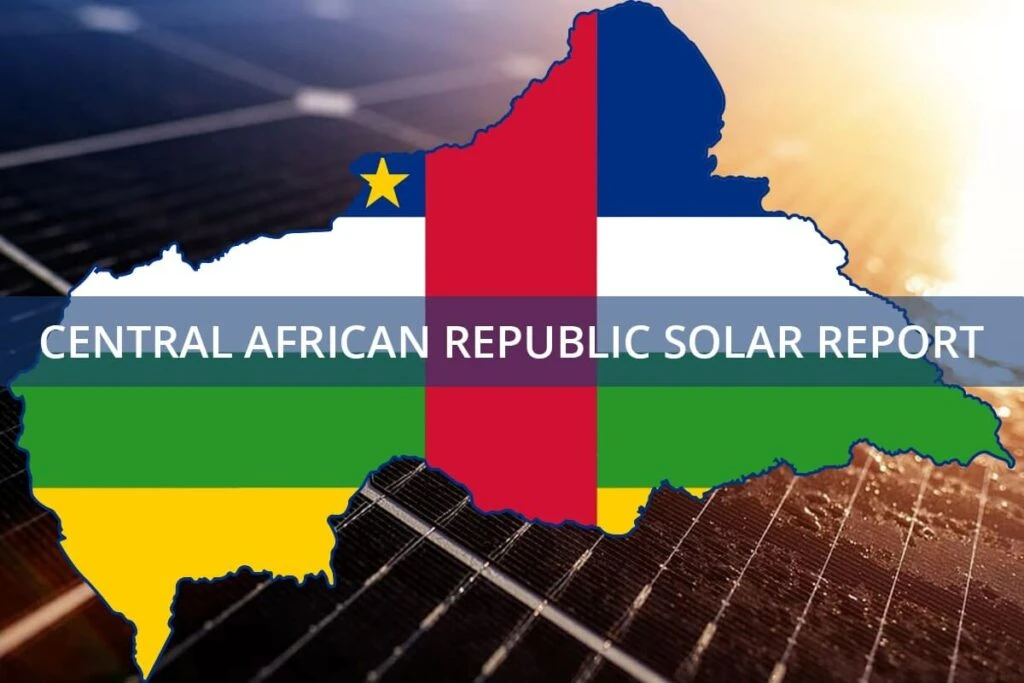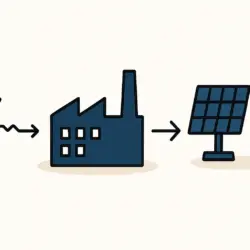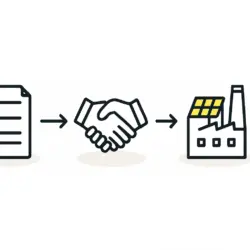In the village of Abala, the Congo Solar Minigrid Project is transforming lives by providing reliable solar energy to over 1,000 people. As part of the World Bank’s Electricity Access and Service Expansion (EASE) project, this initiative has significantly improved education, healthcare, and business opportunities throughout the area.
How the Congo Solar Project is Powering Change in Abala
While this ambitious initiative is already revolutionizing life in Abala, its reach extends much further. As part of the World Bank’s Electricity Access and Service Expansion (EASE) project, the goal is to provide solar energy to 4,500 households and 500 schools across the Congo. The $30 million project is a vital component of the government’s plan to increase electricity access nationwide.
Abala is the first village to benefit from this transformative project, where the impact has been both immediate and profound. Just months ago, the village was shrouded in darkness, with only a few kerosene lamps and flashlights to illuminate the way. Today, solar power has turned night into day, enabling businesses to thrive, children to study after dark, and healthcare services to improve.
Education and Healthcare Transformed by the Congo Solar Project
In education, the Congo Solar Minigrid Project has made a remarkable difference. At Ecole de la République, a primary school in Abala, head teacher Alain Etienne cannot contain his excitement. “I’m overjoyed!” he exclaims. For the first time, the school has computers and printers, making it easier to prepare for the new school year. The solar power plant, funded by the World Bank and constructed by the Congolese government, makes all this possible.
The project’s impact extends beyond the classroom. For the first time, students can study at night, a luxury previously unimaginable in Abala. “Solar energy has changed everything,” says Etienne. “Now, our children can learn and dream of a brighter future.”
Solar energy has also brought life-saving improvements to Abala’s healthcare. At the local health center, nurse Prisca Ngoma can now store vaccines and other medicines in a refrigerator—a critical development for the health and well-being of the village’s children. “Thanks to solar power, we have vaccinated over 800 children,” Ngoma explains. “Without it, their lives would be at risk.”
Economic Growth Sparked by the Congo Solar Project
The Congo Solar Minigrid Project is doing more than just bringing light to Abala—it’s also sparking economic activity. Local businesses are thriving, as shopkeepers and artisans can now keep their doors open at night. The village’s main street, once deserted after sunset, is now bustling with life.
For many residents, electricity is more than a convenience—it is a catalyst for economic growth. “With electricity, I can work longer hours and earn more money,” says one local entrepreneur. “The future looks brighter than ever.”
The project’s success in Abala is just the beginning. The World Bank and the Congolese government are committed to expanding this initiative to other villages and bringing solar energy to thousands more people. This work is a key part of the government’s broader strategy to increase electricity access across the country.
As more villages gain access to solar power, the benefits will only multiply. Education, healthcare, and economic opportunities will continue to improve, creating a brighter, more prosperous future for the Congo.
The Congo Solar Minigrid Project is a shining example of how renewable energy can transform lives. In Abala, the project has brought light, hope, and opportunity to a village that was once in darkness. As the project expands, it will continue to bring these same benefits to communities across the Congo.
This project is part of a broader effort to develop renewable energy infrastructure across Africa, reflected in initiatives like Solar Power Africa 2025 that highlight innovations transforming energy access. These projects fuel the global push for sustainable development and energy security, helping to build a more resilient future for all.



